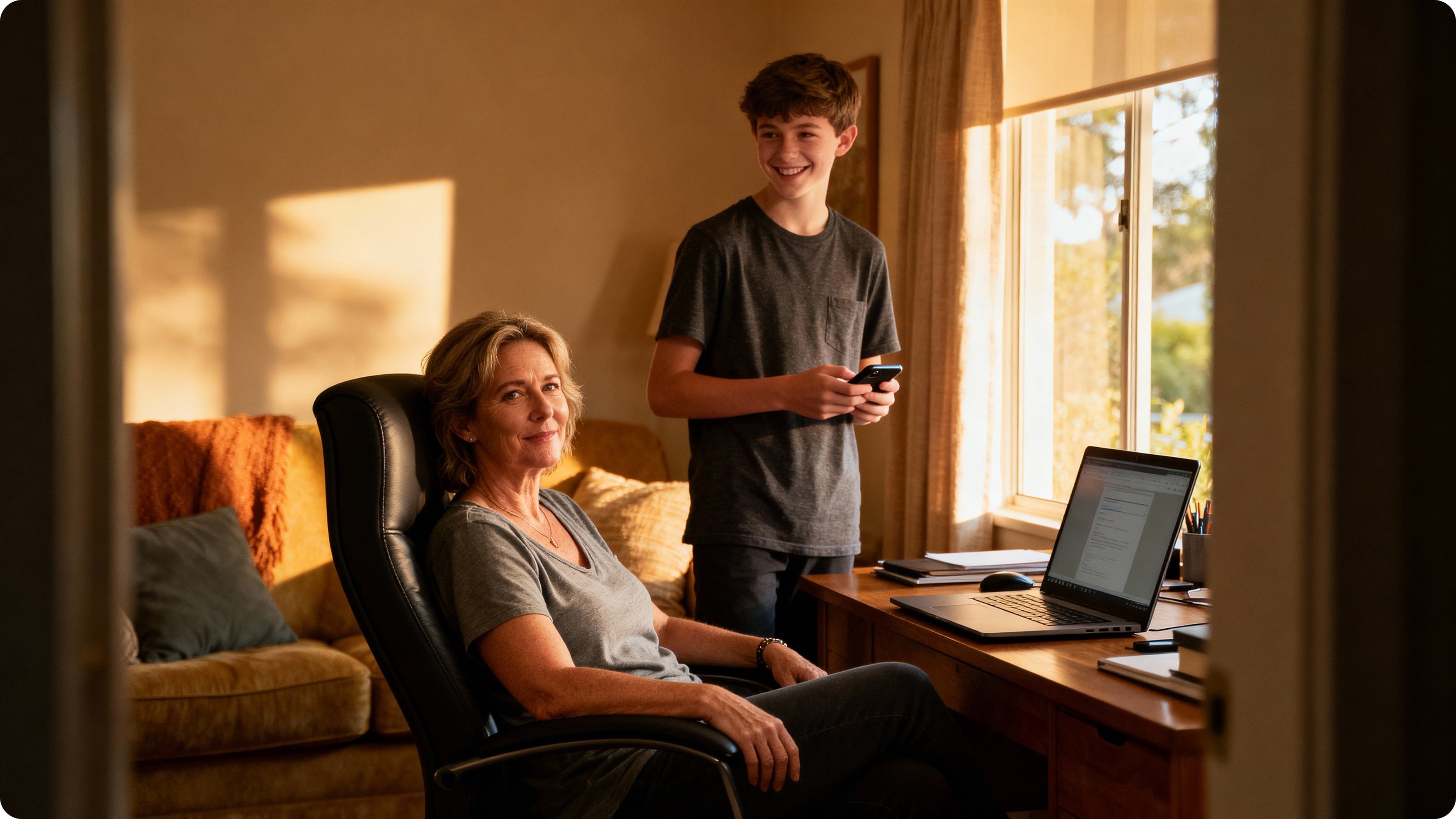I was sipping coffee when my phone buzzed—another payment alert. Then another. "Relax, Mom, it's just stuff I need," my fifteen-year-old said without looking up. I opened the statement and froze—skins, hoodies, gift cards, dozens of small charges stacking fast. "It's my money!" he snapped. "Until you start paying the bills, it's not just your money," I said. He rolled his eyes, but I saw a flicker of guilt. That morning, I stopped pretending it was fine. The problem wasn't just the spending—it was losing our sense of trust.
Meet the Keller Family Story
Stopping impulse shopping and restoring financial trust at home

Our Family's Struggle

Challenge
My son had discovered the magic of one-click payments. Game coins, virtual gear, even late-night online orders—it all looked harmless until the charges stacked up. "Mom, I'll pay you back," he said, but the pattern never stopped. I tried locking cards, deleting store apps, even setting reminders, but the problem wasn't the tech—it was the temptation. Every new charge meant another lecture, another eye roll, another quiet evening lost. I needed a solution that stopped the spending before it even began.

Solution
I turned to FamiSafe and blocked all shopping and payment apps—Amazon, wallets, even in-game stores. Now, every purchase needs my approval before it goes through. The first time he tried buying game coins, a request popped up on my phone instead of a charge. He sighed, then smiled. "Guess that's fair," he said. Within days, the surprise alerts stopped—and so did the tension. We started talking about budgeting, not blaming. He still teases me when I check my phone, but now he asks first. It's not about control anymore—it's about respect and trust.
The Keller Family Today







